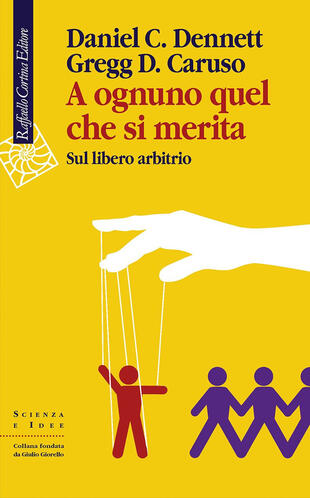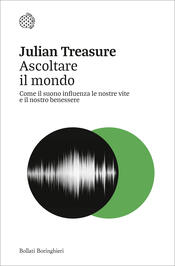

Sinossi
Il concetto di libero arbitrio è essenziale per le nostre relazioni interpersonali e le pratiche morali e giuridiche. Se risultasse che nessuno è mai libero e moralmente responsabile, che cosa vorrebbe dire per la società, la moralità, la vita di tutti i giorni? Daniel Dennett e Gregg Caruso presentano le loro argomentazioni pro e contro l'esistenza del libero arbitrio e ne discutono le implicazioni. Dennett sostiene che il genere di libero arbitrio richiesto per la responsabilità morale è compatibile con il determinismo. Caruso è di parere opposto: per lui, quel che siamo e ciò che facciamo rappresentano, in ultima analisi, il risultato di fattori che sono al di là del nostro controllo, e per questo non siamo mai moralmente responsabili delle nostre azioni nel senso che ci renderebbe davvero meritevoli di biasimo o di lode, di punizione o di ricompensa. "A ognuno quel che si merita" introduce i concetti centrali del dibattito sul libero arbitrio e sulla responsabilità morale mediante un dialogo filosofico coinvolgente, rigoroso e talvolta acceso tra due eminenti pensatori.
- ISBN: 8832854023
- Casa Editrice: Cortina Raffaello
- Pagine: 250
- Data di uscita: 31-03-2022
Recensioni
Among the perennial questions of philosophy, free will remains one of the most difficult concepts to reconcile with modern science. On the one hand, our best natural science seems to point to a deterministic universe based on immutable laws of physics, yet on the other, our subjective experience see Leggi tutto
Esiste una responsabilità morale basata sul merito? Cioè, la gente è moralmente responsabile di quello che fa, e merita punizione/premi (ad esempio, merita la punizione se non rispetta le leggi)? E' questo, sostanzialmente, l'argomento di questo libro, che viene dibattuto da Dennett (che crede nel lib Leggi tutto
W filozoficznej argumentacji kluczowe znaczenie ma precyzyjne zdefiniowanie pojęć. W tej dyskusji Dennetta z Caruso ewidentnie tego brakuje. Odniosłem wrażenie, że autorzy adresują swoje rozważania raczej swoim doktorantom, niż popularnemu czytelnikowi, gdyż nader często nadmieniają, że dany ‘oczywi Leggi tutto
Full disclosure: I was pretty deep in Caruso's territory at the start of this book, despite only being familiar with the work of his opponent Dennett. Determinism negating any kind of meaningful free will or choice seems to intuitively also negate deserts or any kind of judgement based on someone ma Leggi tutto
I'm generally sympathetic to compatibilist arguments, but in this case I think Caruso really ran away with this one. His ideas are much more clear and to-the-point throughout, and I think his attempts to make sense of Dennett's arguments often make his points more clearly than Dennett does himself.
Excelente debate, buenísimo para entender cómo se charla de filosofía y qué difícil que es entenderse entre personas que piensan distinto. Me encantó.
Gregg Caruso argues that determinism and free will are incompatible. He describes himself as a ‘free-will sceptic’. He says that nothing we do is within our control and in consequence praise and blame, reward and punishment are all equally undeserved. ‘Constitutive Luck’ determines our genetic endow Leggi tutto
I thoroughly enjoyed the debates between Dennett and Caruso, representing Compatibilism and Skepticism respectively. I found that Caruso gave crisp, clear arguments for a world with justice but without free will. I found myself in agreement with Caruso, even before he had made note of it in the book Leggi tutto
Citazioni
Al momento non ci sono citazioni, inserisci tu la prima!






















